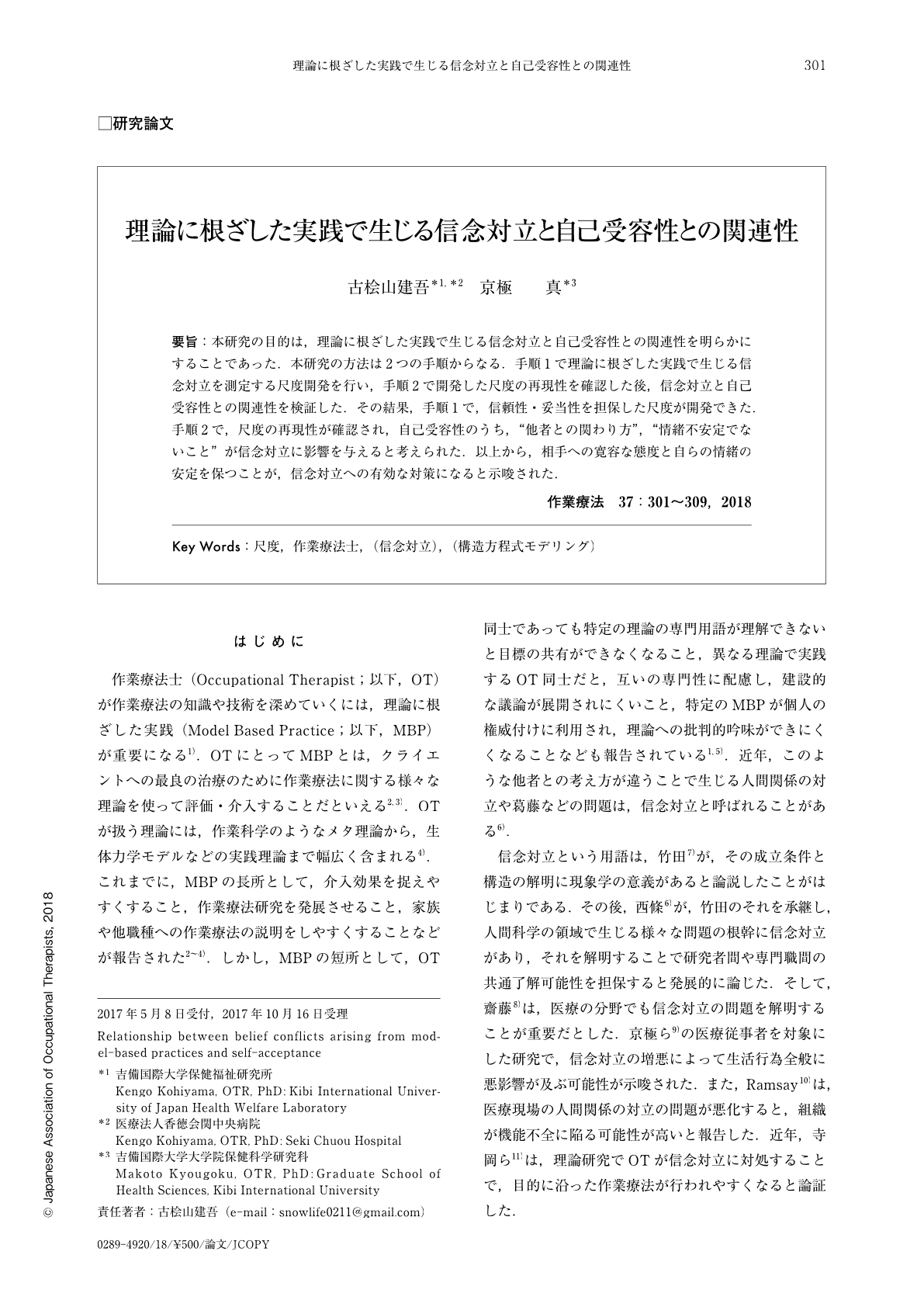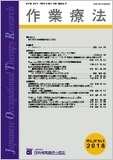Japanese
English
- 販売していません
- Abstract 文献概要
- 1ページ目 Look Inside
- 参考文献 Reference
- サイト内被引用 Cited by
要旨:本研究の目的は,理論に根ざした実践で生じる信念対立と自己受容性との関連性を明らかにすることであった.本研究の方法は2つの手順からなる.手順1で理論に根ざした実践で生じる信念対立を測定する尺度開発を行い,手順2で開発した尺度の再現性を確認した後,信念対立と自己受容性との関連性を検証した.その結果,手順1で,信頼性・妥当性を担保した尺度が開発できた.手順2で,尺度の再現性が確認され,自己受容性のうち,“他者との関わり方”,“情緒不安定でないこと”が信念対立に影響を与えると考えられた.以上から,相手への寛容な態度と自らの情緒の安定を保つことが,信念対立への有効な対策になると示唆された.
The purpose of this study was to clarify the relationship between belief conflicts arising from model-based practices and self-acceptance. The method of this study consisted of two steps. In Step 1, we developed a scale to evaluate belief conflict arising from model-based practices. In Step 2, we confirmed the replicability of the scale. Moreover, we examined the relationship between belief conflict and self-acceptance. As a result, the scale developed in Step 1, guaranteed reliability and validity, and in Step 2, the replicability of the scale was confirmed. Furthermore, we found that the “relationship with other people” and “not being emotionally unstable” in self-acceptance have an effect on the belief conflict. The results indicate that demonstrating a broad-minded attitude towards other people's practices and maintaining mental well-being produce less belief conflict.

Copyright © 2018, Japanese Association of Occupational Therapists. All rights reserved.


